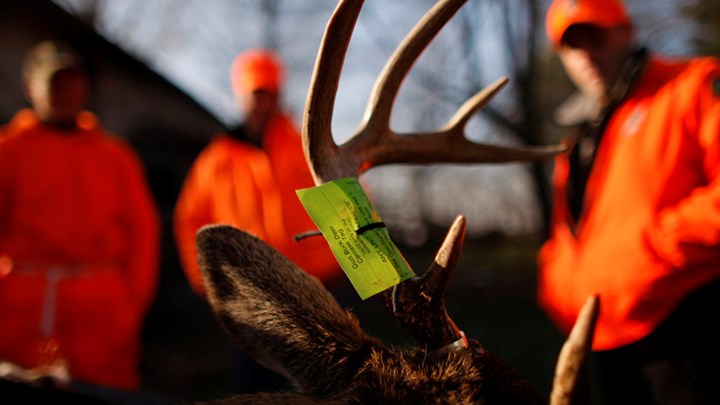
by John Borkovich, Retired Michigan Conservation Officer - Friday, December 21, 2018

What comes to mind when we hear the word “poacher?” A criminal, thief, trespasser or a cheater is a common description. What does not come to mind is the word “hunter”—because poachers are not hunters.
Throughout my career as a wildlife law enforcement officer, I witnessed many poachers harming our wildlife. I arrested and interacted with many of these criminals who continue to intentionally violate our game and fish laws. On the contrary, I have also witnessed some minor violations that hunters have made afield—good people who hunt sometimes make an unintentional mistake regarding a game law. These people should not be branded as poachers as there is a clear difference. So when we hear a game warden tell the story of a poacher he arrested, this should not make hunters look bad. Hunters act legally. Poachers purposely break the law. While millions of people are hunters, only a few by comparison are poachers.
As stated in an article “Poaching Is Not Hunting,” published by NRAHLF.org and written by Phil Phillips, poaching may be the single greatest threat to hunting. Phillips explains, “In my 30-plus years in the hunting industry, one of the most common misconceptions among non-hunters has been that poachers are hunters. This gives anti-hunting extremists unjustified ground to stand on as they try and put hunters in a bad light.” In truth, Phillips adds, hunters are the first to protect and crack down on the exploitation of wildlife.
This protect-and-conserve attitude comes from the fact that like most other people, hunters care about animals. In fact, many belong to and financially support groups that also focus attention on promoting one particular species, such as the National Wild Turkey Federation, Rocky Mountain Elk Foundation or Pheasants Forever. Groups like Whitetails Unlimited and the Mule Deer Foundation promote healthy whitetail and mule deer herds and their habitat. Most all hunters are concerned with conservation efforts to ensure healthy wildlife populations while preserving our hunting heritage.
Let’s examine deer hunting. Deer have great value in America. Aside from the money hunters generate through their hunting licenses and on meals and lodging for their hunting trips, deer provide value when it comes to food and sport, and they have intrinsic value. However, until recently, the fines levied on deer poachers in most states were so minimal that they were not much of a deterrent. This was especially true for those caught poaching what people refer to as “trophy” bucks, or deer with exceptional antlers. Someone convicted of illegally taking a record-book 12-point buck in most states, for example, would merely have to pay a fine of $500 and $1,000 in restitution. Considering that some large trophy bucks are worth $5,000, $10,000 or more, paying a mere $1,500 led some criminals to believe that poaching was worth the risk.
Fortunately, states began realizing there is great value in trophy deer. In Michigan I was responsible for initiating a new law to protect trophy bucks by greatly increasing poaching fines. Through much effort, I finally was successful in getting the enhanced trophy-poaching law enacted. States such as Colorado, Ohio, Utah, West Virginia, Maryland, California, Tennessee and others also enacted such legislation and now have laws that mandate enhanced fines and restitution for poachers of trophy deer. These laws stipulate the bigger the buck that someone kills illegally, the greater the fine. Some fine guidelines are tied to the Boone and Crockett scoring scale, while others are based on the number of points a deer has.
Though all deer are trophies, the four cases below are examples of the costs now associated with stealing a trophy buck from law-abiding citizens.
The above cases are just a sampling of the progress America’s wildlife law enforcement officers are making, often thanks to information reported by hunters. As increasing interest is placed on stopping poaching, we hope to minimize the harm that poachers do to our wildlife and to mainstream all-American hunters’ reputations.
■ ■ ■
About the Author
John Borkovich’s love of nature led him to become a wildlife conservation officer. Now retired, he served as a firearm instructor, a member of the Michigan Department of Natural Resources’ Firearms Transition Team and a field training officer at the Conservation Officer Police Academy at Michigan State Police headquarters. He also served as an adjunct professor for the St. Clair County Community College’s criminal justice department.
Borkovich’s book, “Wildlife 911: On Patrol,” is available through his website, wildlife911officer.com. The cost is $19.95 and can be purchased through PayPal with any major credit card. To read other NRHLF.org articles by John Borkovich, please check out the following links:
E-mail your comments/questions about this site to:
[email protected]
